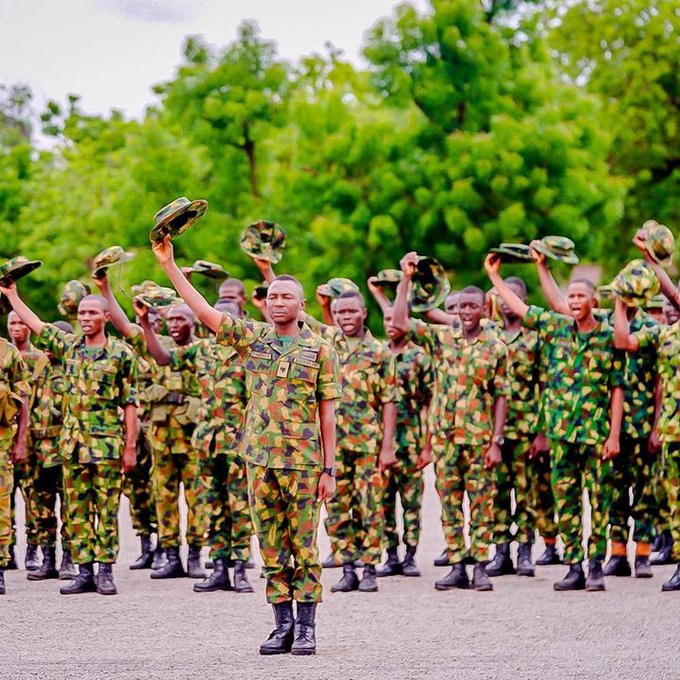In recent weeks, a sinister and unsettling whisper has slithered through the corridors of Nigerian discourse, finding fertile ground in the frustrations of a weary populace. It is the whisper of a military coup. In an era where digital rumour mills can fabricate reality, this dangerous speculation must be confronted and condemned with the full force of our collective will. To entertain the notion of an unconstitutional seizure of power is not merely a political error; it is a profound act of national amnesia, a betrayal of our painful history, and a reckless flirtation with the very darkness from which we fought so hard to escape. As a nation, we must stand resolutely and declare: never again.
To comprehend the sheer folly of this conversation, one must take an unflinching journey back through the annals of our post-independence history. For the better part of three decades, the rhythm of Nigerian governance was not the gentle pulse of the ballot box, but the jarring stomp of the jackboot. The period from the first coup in 1966 until the death of General Sani Abacha in 1998 was not, as some now nostalgically misremember, a golden age of discipline and order. It was an era defined by the brutal truncation of hope.
The democratic promise of the First Republic was violently cut short, setting in motion a chain of events that led to a devastating civil war. The oil boom of the 1970s was squandered in a haze of corruption, with military rulers amassing obscene wealth while our national infrastructure crumbled. But it was in the 1980s and 90s that the true cost of dictatorship became seared into our national psyche. The economy was strangled by Structural Adjustment Programs imposed without public consent. Basic freedoms were extinguished. Dissent was met with intimidation, torture, and murder. The media was muzzled; newspapers were shut down, and journalists like the legendary Dele Giwa were killed by letter bombs. The phrase “on leave” became a euphemism for a one-way trip into the gulags of the State Security Service. This was a time of collective trauma, where the rights to speak, to assemble, and to choose were luxuries we could only dream of.
We must never forget that the democracy we have today was not a benevolent gift from the barracks. It was a prize, wrestled from the grip of the generals through the courage, blood, and sweat of ordinary Nigerians. When the military annulled the freest and fairest election in our history on June 12, 1993, the people did not acquiesce. A formidable coalition rose—a vibrant and defiant press that risked everything to publish the truth, civil society organisations like the Campaign for Democracy, and tireless pro-democracy groups that mobilised the masses. They stood firm, their voices a unified roar against the tyranny of General Sani Abacha. The struggle was long and painful, paved with the lives of martyrs, but it was ultimately victorious. The return to civilian rule in 1999 was a national celebration, a hard-won victory. To even whisper about a coup today is to spit on the graves of those who died for the Fourth Republic.
These recent rumours are especially disturbing given the ominous context of our region. The Sahel has become a hotspot for a coup contagion, with soldiers successfully usurping power in Mali, Burkina Faso, Niger, and Guinea. The playbook is chillingly familiar: the military capitalises on genuine public anger over failing economies, rampant insecurity, and corrupt civilian governments to pose as saviours. Yet, the aftermath consistently reveals a grimmer reality: heightened instability, worsened humanitarian crises, and a retreat into international pariah status. Nigeria, as the regional giant and a bastion of relative stability, must not succumb to this authoritarian fever. Our nation’s immense size, complexity, and fragile ethnic and religious balance mean that a military takeover would not bring order, but would likely plunge us into a chaos far greater than any of our current challenges.
There is no denying that our democracy is facing a severe test. Widespread insecurity, economic hardship, and palpable political disillusionment have created a fertile ground for dangerous nostalgia. It is easy for some, in their frustration, to look back at the military era through a distorted lens, remembering a false sense of order while forgetting the terror and the silence. This is a siren song we must resist.
The problems we face are profound, but they are not insurmountable, and they are certainly not solvable by a system that operates without accountability, transparency, or the consent of the governed. The solution to the failures of democracy is not less democracy, but more democracy. It is to strengthen our institutions—INEC, the judiciary, the legislature—and to demand greater integrity and performance from our elected officials.
The duty to defend our hard-won freedom therefore falls upon all of us. The media must continue its vital role as a watchdog and a voice of reason, debunking rumours and holding power accountable through courageous, factual journalism. Civil society, the labour unions, and pro-democracy groups must reawaken and educate a new generation on the horrors of military rule. Our politicians must rise above petty corruption and governance by patronage, and truly serve the people.
Most importantly, every Nigerian citizen must actively choose to support and defend our democratic system. This goes beyond voting every four years. It means engaging in civic discourse, holding local officials accountable, and rejecting, in clear and certain terms, the narrative of violent, unconstitutional change.
The path forward is difficult, but it is clear. We must channel our collective frustrations into strengthening our democratic processes, not dismantling them. We must choose the arduous, noisy, and often messy path of democracy over the silent, sterile dead-end of dictatorship. The ghosts of our past are knocking at the door, offering the false comfort of the strongman. We must, with one unified voice, tell them: never again. Our future, for all its challenges, lies in perfecting our democracy, not in burying it.

